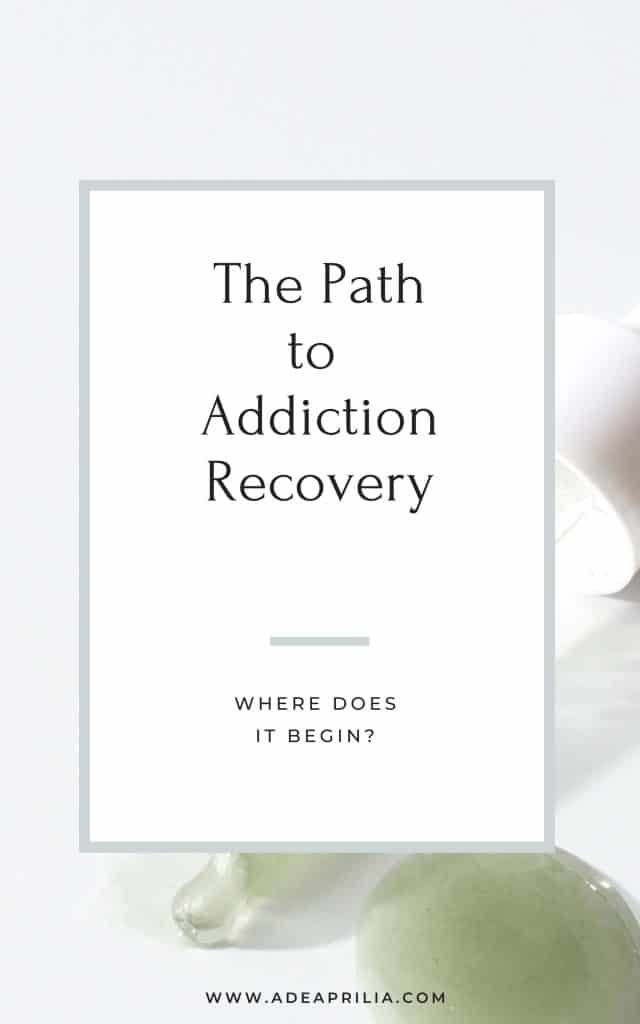
Last Updated on October 3, 2023 by Ade Aprilia
This post may contain affiliate links. If you make a purchase, I’ll receive a commission. Win-win. Disclosure
For most of us, addiction recovery can be a difficult journey. But if you’re open to that, that can lead to a better life.
If you or someone you love is struggling with addiction, I understand that it can be hard to know where to begin.
There is a lot of help and support available from reputable experts, such as Restorations Health Care for example. But addiction recovery professionals are the first to explain that the healing journey begins long before you choose a recovery program.
READY TO LET GO OF THINGS THAT DON’T SERVE YOU ANYMORE SO YOU CAN HAVE MORE ENERGY?
Check out my free guided audio to get started on how to release emotions painlessly on the spot!
Indeed, healing is an informed decision you can make for yourself once you realize that your coping mechanisms or habits are harmful to your health. There is a huge difference between someone who doesn’t know they exhibit addiction behaviors and someone aware of their problem. Self-awareness is instrumental to finding healing through your recovery and ensuring you can put everything safely behind you.
With the right support, it is possible to recognize your triggers, let go of negative emotions, build new coping mechanisms, and ultimately achieve addiction recovery. In this blog post, we’ll explore the path to addiction recovery and provide tips to help you or your loved one on their journey.
Understanding Addiction
Addiction is a chronic, relapsing disorder characterized by compulsive drug-seeking and use despite harmful consequences. It is a complex condition, one that can be caused by a variety of psychological and social factors. In addition to emotional issues and social environment, addiction can also be caused by genetic factors. Studies have shown that certain genes can make some people more prone to developing an addiction than others.
At its core, addiction is a form of coping mechanism – a way for people to manage their own emotions and experiences without having to confront them directly. When faced with uncomfortable or painful situations, some people may turn to drugs or alcohol in an effort to escape the feelings. Over time, this behavior can become habitual.
No matter how addiction begins, it is important to note that anyone can develop it. Even those with a strong support system or who seem to be in control of their lives can struggle with substance use disorder.
Your Wake-Up Call to The Path to Addiction Recovery
Acknowledging your addiction is an important step in recovery, and it can be difficult to admit that you have a problem.
When it comes to addiction, there are many signs and symptoms that can alert you to a potential problem. One of the most important is recognizing the need for a wake-up call. A wake-up call is an opportunity to confront your addiction and understand the impact it has had on your life.
Signs that may indicate a need for a wake-up call include feelings of loneliness or isolation, changes in sleeping and eating habits, trouble with relationships, problems at work, financial issues, and neglecting your health. You may also notice an increase in risky behavior or an inability to stop using the substance. If you find yourself in any of these situations, it’s time to take stock of your life and seek help.
Identifying Your Triggers
When it comes to addiction, triggers are events, situations, or feelings that can cause a person to relapse. Emotional triggers are particularly powerful because they can cause you to become overwhelmed and act out in destructive ways.
Common emotional triggers that can encourage addictive behavior include:
• Stress – When you’re feeling overwhelmed with life’s daily stressors, it can be easy to turn to drugs and alcohol as an escape.
• Depression – Feeling depressed or anxious can lead to self-medicating with substances.
• Isolation – Feeling lonely or disconnected from those around you can lead to substance use as a way of numbing out.
• Trauma – A traumatic event can lead to feelings of distress and helplessness, which can be relieved through substance abuse.
• Boredom – When you have nothing else to do, it can be easy to turn to substances to fill the time.
• Low Self-Esteem – Feeling like you are not worthy or good enough can lead you to seek validation through substances.
Letting Go of Negative Emotions
Recovering from addiction can seem to be hard work; it requires immense courage and strength and can be emotionally and physically draining. One of the most important steps in recovery is to let go of any negative emotions that might be holding you back from seeking help or embracing a new lifestyle.
The first step to letting go of negative emotions is to recognize them. Common signs include feeling overwhelmed, anxious, guilty, resentful, frustrated, and even ashamed. If you leave those unaddressed, they can become emotional triggers.
There can be a variety of causes for your negative emotions, such as unresolved childhood trauma, a major life change, or a deep-seated belief that you are not worthy of recovery. Whatever the source of your emotions, it is important to acknowledge them and learn to release them. Letting go of negative emotions puts you back in the driving seat of your life.
You can share with your loved ones what elements initiated the negative emotion, so they can also help avoid it in the future.
Building New Coping Mechanisms
One of the most important steps in your recovery is building new coping mechanisms that will help you stay strong and prevent relapsing.
Coping mechanisms are activities, skills, and strategies you use to manage difficult emotions and stressful situations. They can be physical activities, like going for a run or practicing yoga, mental activities, like journaling or mindful meditation, and of course, most of all, letting go of unpleasant emotions because it’s the core of whatever we do in life.
Building new coping mechanisms can also involve developing healthy hobbies and activities. This can include anything from joining a club to volunteering. Having meaningful activities to focus on can help to support you in feeling excited about life again.
Healthy habits and routines can help you stay accountable and stick to your recovery plan. Establishing regular sleep schedules, eating nutritious foods, exercising regularly, and setting achievable goals are all key elements in building new coping mechanisms that can help prevent relapsing.
The road to recovery can seem long, windy, and difficult. But if you wish to reach your destination safely, the first step is to give yourself the chance to build a path towards it through awareness of your situation and emotions.
Those are some of the best ways to ensure that you calm your body and mind more profoundly and fully in life.
Now you.
If you or someone you love is struggling with addiction, I’d love to hear how you recover to inspire others in the comment below.
SAVE THIS FOR LATER!
Did you find this post useful, inspiring? Save this pin to your board on Pinterest. That way, you’ll always have this info on hand!
And please share this with anyone who needs it!





Leave a Reply